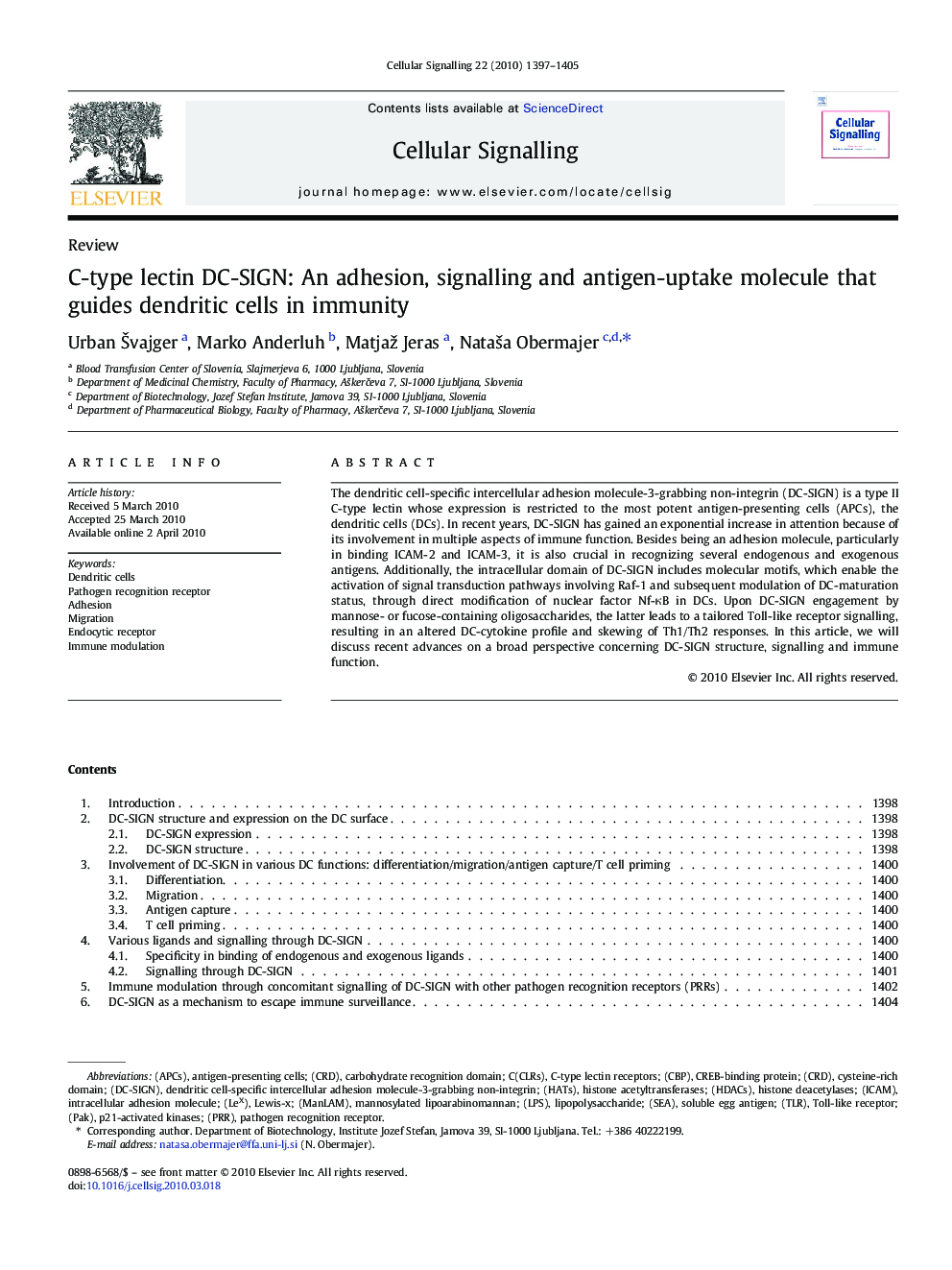| Article ID | Journal | Published Year | Pages | File Type |
|---|---|---|---|---|
| 10815635 | Cellular Signalling | 2010 | 9 Pages |
Abstract
The dendritic cell-specific intercellular adhesion molecule-3-grabbing non-integrin (DC-SIGN) is a type II C-type lectin whose expression is restricted to the most potent antigen-presenting cells (APCs), the dendritic cells (DCs). In recent years, DC-SIGN has gained an exponential increase in attention because of its involvement in multiple aspects of immune function. Besides being an adhesion molecule, particularly in binding ICAM-2 and ICAM-3, it is also crucial in recognizing several endogenous and exogenous antigens. Additionally, the intracellular domain of DC-SIGN includes molecular motifs, which enable the activation of signal transduction pathways involving Raf-1 and subsequent modulation of DC-maturation status, through direct modification of nuclear factor Nf-κB in DCs. Upon DC-SIGN engagement by mannose- or fucose-containing oligosaccharides, the latter leads to a tailored Toll-like receptor signalling, resulting in an altered DC-cytokine profile and skewing of Th1/Th2 responses. In this article, we will discuss recent advances on a broad perspective concerning DC-SIGN structure, signalling and immune function.
Keywords
(LPS)Mannosylated lipoarabinomannansoluble egg antigenantigen-presenting cellsToll-like receptorcarbohydrate recognition domaincysteine-rich domainlipopolysaccharideDendritic Cell-Specific Intercellular adhesion molecule-3-Grabbing Non-integrinintracellular adhesion moleculehistone deacetylaseshistone acetyltransferasesCREB-binding proteinC-type lectin receptors
Related Topics
Life Sciences
Biochemistry, Genetics and Molecular Biology
Biochemistry
Authors
Urban Švajger, Marko Anderluh, Matjaž Jeras, Nataša Obermajer,
